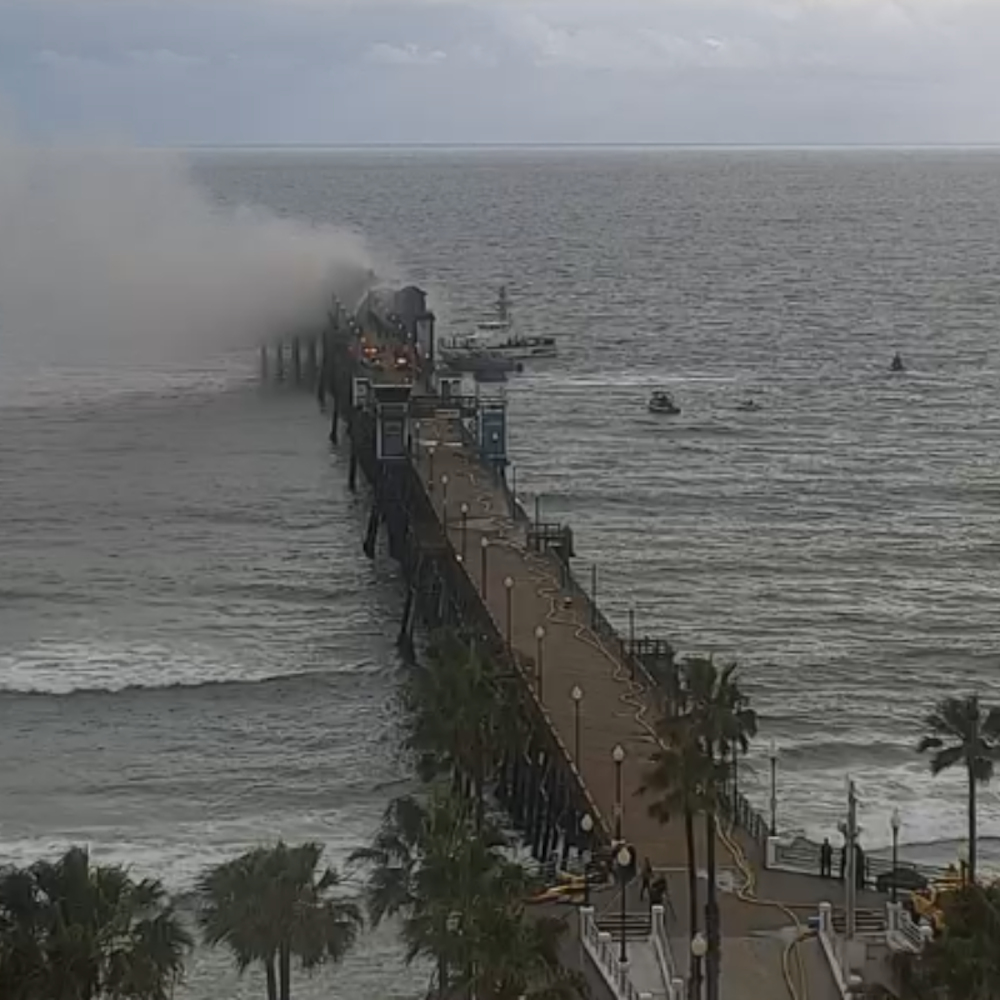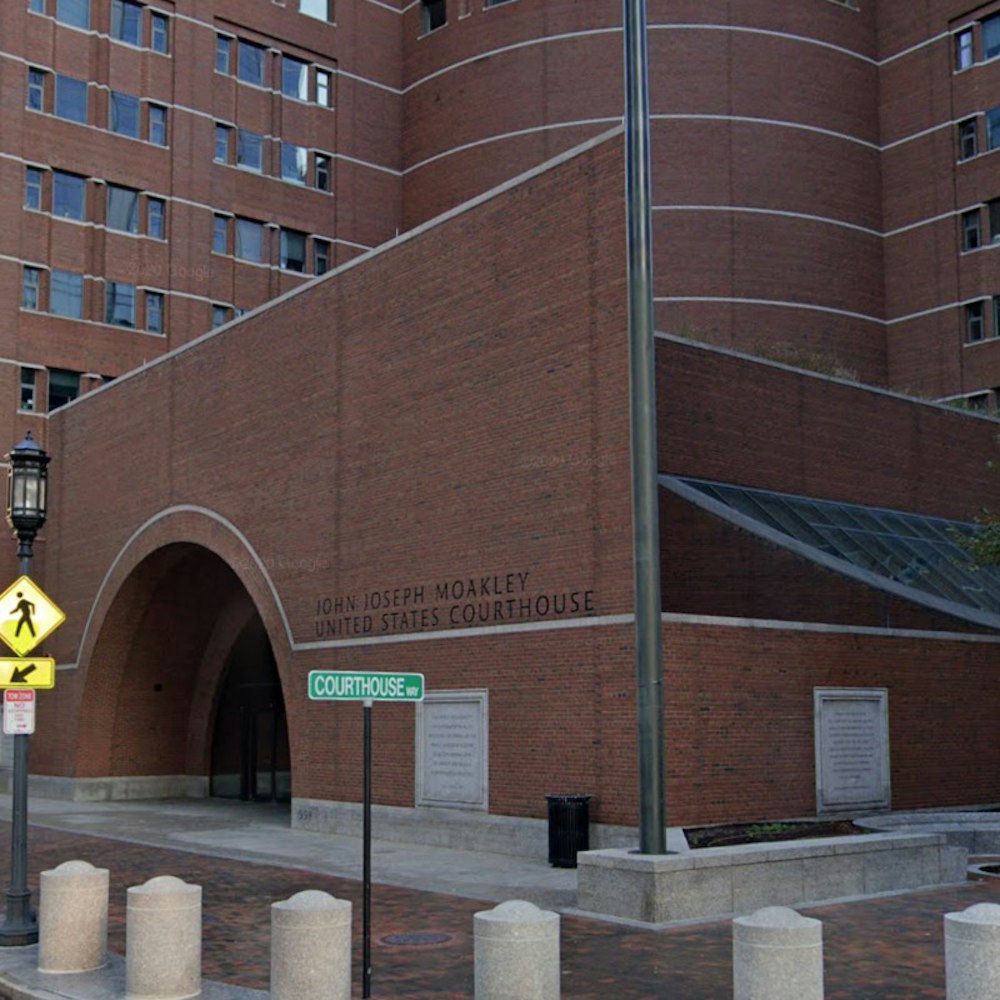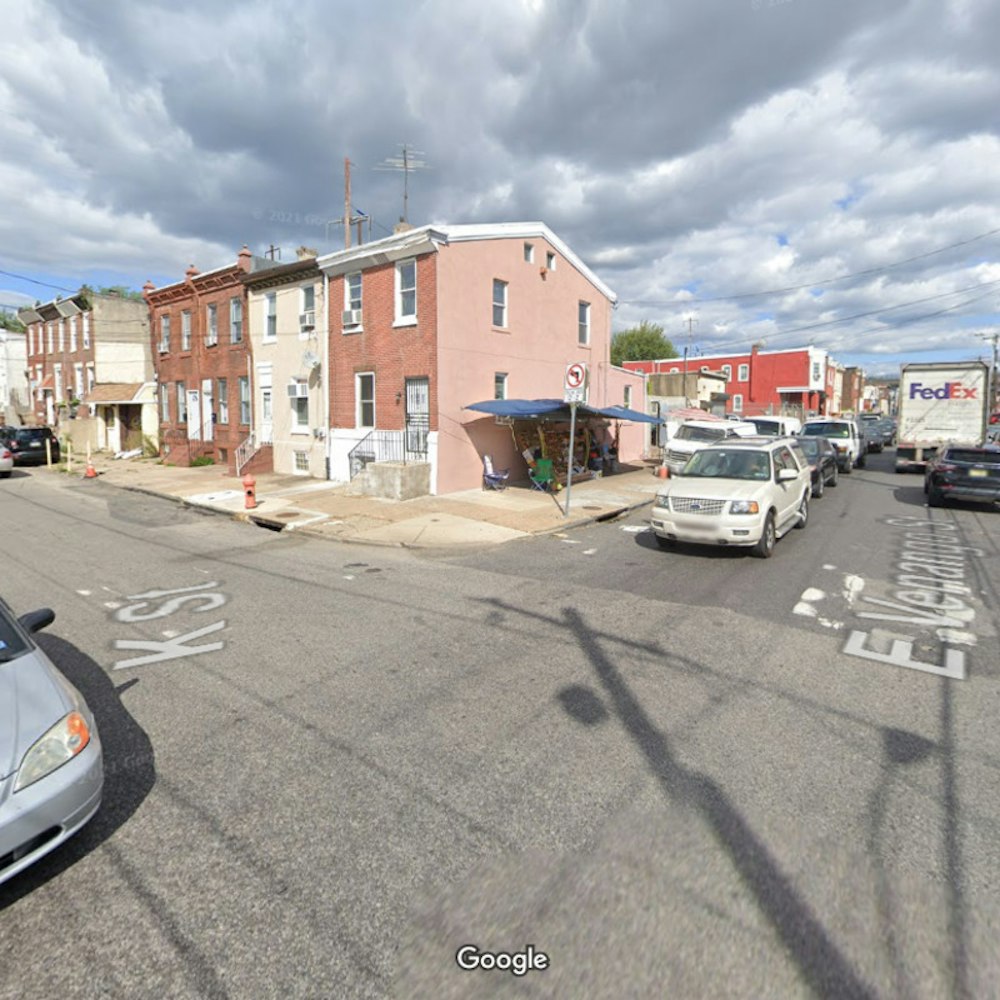![SF Supervisors Vote in Support of Castro Theatre Landmark Update Without Controversial 'Fixed Seating' Language [Updated]](https://img.hoodline.com/2023/6/castrotheatre_front_june2023_bracco-11.webp?max-h=442&w=760&fit=crop&crop=faces,center)
On Tuesday, the San Francisco Board of Supervisors voted in support of the Castro Theatre landmark update without the controversial ‘fixed seating’ language.
The vote comes as a major win for Another Planet Entertainment (APE) which took over programming of the 101-year-old Castro Theatre nearly a year and a half ago.
As Hoodline previously reported, District 8 Supervisor Rafael Mandelman, who proposed the landmark update, made a motion to remove the ‘fixed seating’ language that was added in committee.
The Supervisors voted 6-4 in support of Mandelman's motion. Supervisors Mandelman, Safai, Stefani, Dorsey, Engardio, and Melgar voted in support and Supervisors Peskin, Preston, Chan, and Walton voted against. Supervisor Ronen was absent from today's meeting.
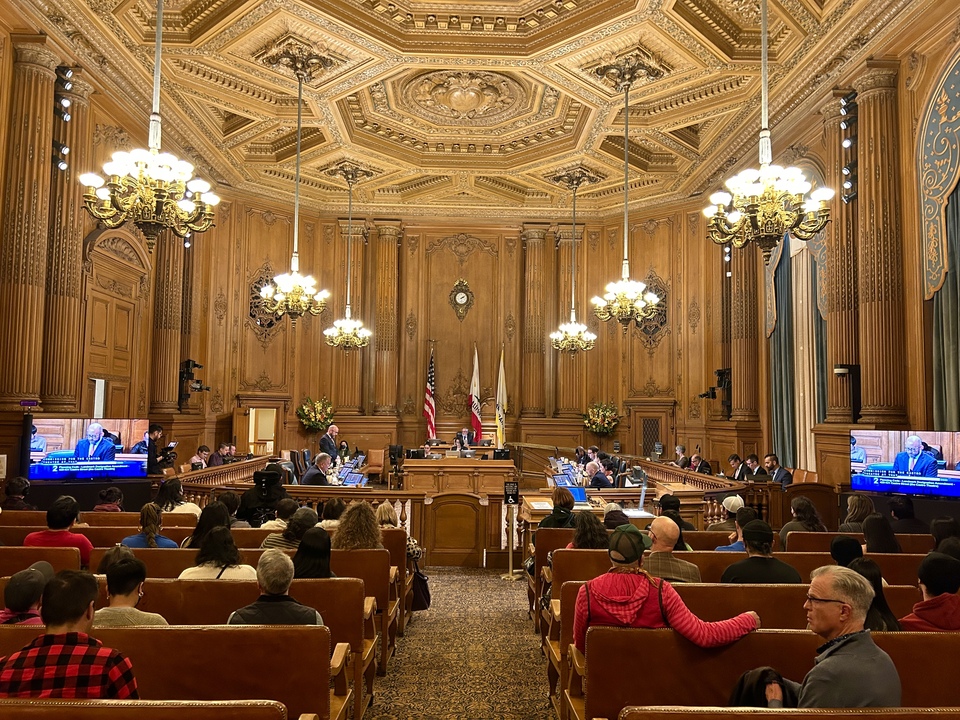
Supervisor Mandelman speaking at the Board of Supervisors meeting. | Photo: Steven Bracco/Hoodline
The landmark update was subsequently passed 9-1 with Supervisor Peskin casting the lone dissenting vote. The vote comes after the Castro Merchants voted last week to fully support APE plans without conditions.
While Castro Theatre hearings have dragged on for hours in the past, this item was over in less than 30 minutes because there was no public comment.
“Plainly both supporters and opponents of the APE project have treated the landmarking as an opportunity to pre-litigate the merits of the APE project,” said Mandelman before the vote. “I am not comfortable doing that, and I’m certainly not comfortable doing that if the intention is to kill the APE project.”
"I have thought of and described this updating as a matter of good preservation hygiene," added Mandelman. "Something that would make sense to do regardless of any particular proposals for renovation of the building."
Harvey Milk's letter about the Castro Theatre's landmark status, from 1977. pic.twitter.com/8OWIEfdIvT
— Save the Castro Theatre (@SaveTheCastro) May 21, 2023
Before the vote, Supervisor Peskin read a letter Harvey Milk wrote in 1977 in support of landmarking the Castro Theatre's exterior. “Too often we have taken down landmarks long before we realize that they would be landmarks,” wrote Milk. “Once gone, it can never be returned.”
“Unless a genuine effort is made to develop a robust and enforceable condition of APE’s use, with real community oversight, this is a rift that will last and will not be healed for a long, long time,” said Peskin. “I don’t think we need to make this decision beholden to the inertia of one party’s investment.”
Supervisor Safai, who came out in support of APE's plans ahead of the meeting, said, "We’re not talking about demolishing and flooring that building. We’re allowing it to be an adaptable space that can be multi-use."
-1.webp)
APE's latest rendering of the proposed standing-room-only floor plan. | Image: Castro Theatre
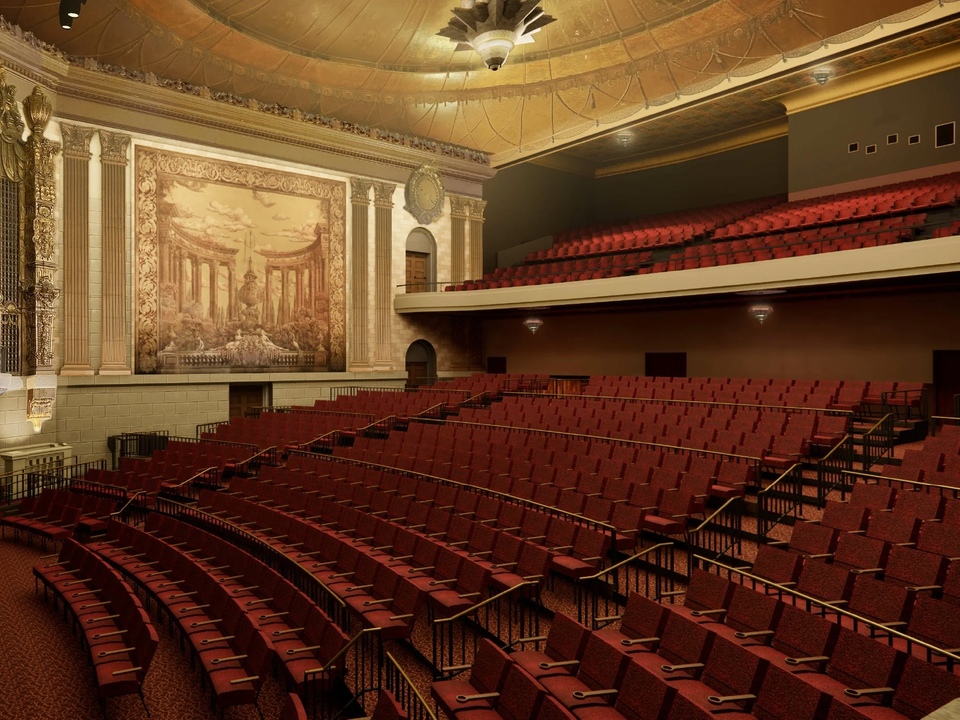
APE's latest rendering of the proposed seating floor plan. | Image: Castro Theatre
Supervisor Preston, who proposed the amendment change in committee, said “I don’t buy that Another Planet Entertainment, if they’re restricted with this aspect of the landmarking, can’t do vibrant use of the Castro Theatre."
"They could figure out how to do it in a way that better preserves the theater," added Preston. "Or if they don’t want to, they can make space for someone else to come in as many community groups have suggested.”
Melgar reiterated the stance that she took in committee. "We are preserving the interior, that’s what this legislative action is," said Melgar. "We are just not including the fixed seating as of that interior landmarking."
In response to Milk's letter Mandelman said, "Milk was a preservationist, he was also a neighborhood guy." "The sentiment in the neighborhood...is strongly in support of the APE project or at least not supportive of kicking APE out."
Mandelman addressed the possibility of returning the fixed seating to the orchestra if and when APE chooses to no longer manage the theatre. “The removal of 20-year-old seats is something that can eminently be undone, if the APE project does not work out, and at some future point some other operator or buyer decides that it would make sense to operate this as a nonprofit film conservancy, seats can be put in, the rake will still be there" explained Mandelman.
Mandelman's statement was in direct reference to the Secretary of the Interior Standards for rehabilitating historic buildings. It will be up to the Historic Preservation Commission to determine if the removal of the current seating configuration is a character-defining feature.
According to Rehabilitation Standard #10, "New additions and adjacent or related new construction will be undertaken in such a manner that, if removed in the future, the essential form and integrity of the historic property and its environment would be unimpaired."
Hoodline reached out to Mandelman for clarity on his statement and how it would affect APE's plans but did not immediately receive a response.
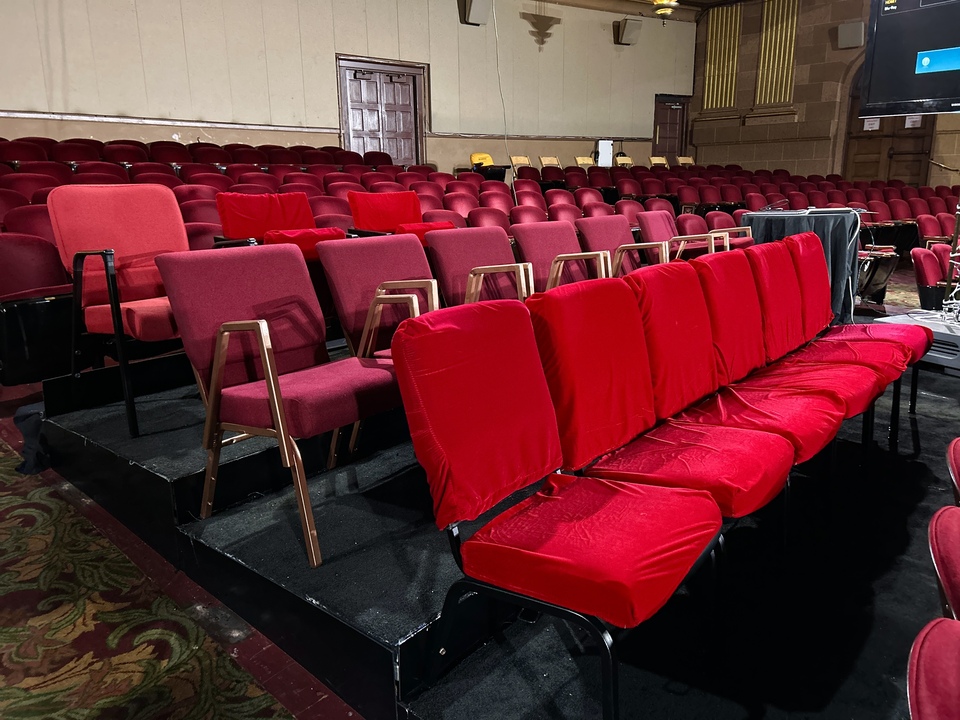
Four of the proposed seating options at the Castro Theatre. | Photo: Steven Bracco/Hoodline
APE spokesperson David Perry shared a statement with Hoodline. "Thank you San Francisco Board of Supervisors. Everyone who treasures the Castro Theatre, the Castro neighborhood, and the film and LGBTQ programming that is so much a part of both should be grateful tonight," wrote Perry. "An irreplaceable international icon now has the ability to be preserved, restored, and to evolve for this and future generations.”
APE has proposed much-needed renovations of the neglected Castro Theatre, along with removing the orchestra-level seating and replacing them with four-tiered sections of platforms with removable seats.
"Today’s vote preserves the Castro Theatre’s history and paves the way for a bright and active future," said Neighbors for a Restored Castro Theatre co-chair Joe Sangirardi. "We are thrilled that the Board of Supervisors recognized the broad community support for this historic designation and thank Supervisor Mandelman for working so hard to bring the neighborhood together."
"We hope this Thursday’s joint commission meeting approves APE’s plans for restoration and revitalization so the Castro Theatre not only survives, but thrives for the next 100 years," added Sangirardi.
Help @apeconcerts keep the Castro Theatre open for another 100 years 🌈 Attend the Planning & Historic Preservation Commissions joint hearing THIS THU, 6/8 at 10am at SF City Hall, or call in to voice your support 📲 For more, visit the link below!
— Castro Theatre (@Castro_Theatre) June 6, 2023
ℹ️: https://t.co/MXVeL2wPjl pic.twitter.com/XnmL7Jd7JQ
In response to the vote, the Castro Theatre Conservancy executive director Peter Pastreich said, "The Castro Theatre is a beloved landmark and a vital community asset and should be treated as such." "Today’s vote, indicating the Supervisors’ willingness to see San Francisco’s last movie palace desecrated so that a for-profit organization can make more profit, showed a lack of understanding of the Castro Theatre’s broad cultural significance that we very much regret."
Castro LGBTQ Cultural District co-chair Stephen Torres said, “The Castro LGBTQ Cultural District takes seriously its role in the preservation of our cultural and historic legacy - especially in times when safe spaces for the LGBTQ community, especially our most vulnerable, are disappearing. Although we are disappointed that the Board of Supervisors did not take this opportunity to mandate proper stewardship over a threatened community asset, we will continue to support the broad coalition of community stakeholders as they seek to ensure that community self-determination." [Full disclosure: Steven Bracco, Hoodline's Castro reporter, is a board member of the CQCD and member of the Castro Theatre Coalition.]
Tuesday's meeting will now be followed by a joint meeting of the Planning and Historic Preservation Commissions on Thursday to consider a Certificate of Appropriateness along with a planning code change and a conditional use permit to allow bars on the first and second floors.
Update 6/7:
Tomorrow's joint Planning and Historic Preservation Commission meeting has been postponed to June 15. Hoodline has reached out to Planning staff for more information and will update the story.
SF Planning spokesperson Dan Sider tells Hoodline the meeting was postponed due to a quorum issue.

